The BaP (Brain and Pain) team is integrated by professionals from the University of Santiago (USC) and the Sanitary Research Institute of Santiago (IDIS) and directed by María Teresa Carrillo De La Peña.
Our main research interests are:
The BaP (Brain and Pain) team is integrated by professionals from the University of Santiago (USC) and the Sanitary Research Institute of Santiago (IDIS) and directed by María Teresa Carrillo De La Peña.
Our main research interests are:
These research lines are aligned with strategic and priority research areas at European, national and regional levels.
Our laboratories are equipped with:
Furthermore, as members of IDIS, the group has access to neuroimaging techniques such as functional and structural magnetic resonance.
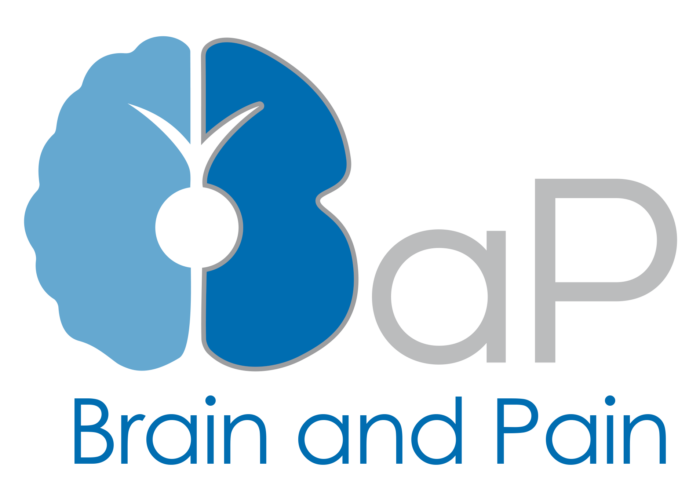
BaP is part of the Applied Cognitive Neuroscience and Aging (Neurocog-Aging) group, directed by Professor Fernando Díaz, which belongs to the University of Santiago (USC) and the Institute of Health Research of Santiago (IDIS).
This group is working on the following lines of research:
More information about the group: Applied Cognitive Neuroscience and Aging Research Group.
“ONCOQUEST: Validation of questionnaires for Spanish oncological population: cognitive complaints, coping with cancer and pain”.
“ONCODEP: Intervention with Noninvasive Brain Stimulation and Cognitive Training for Depressive Symptomatology Associated with Breast Cancer”.
“KNOwMorePain: Mejorar el conocimiento de los mecanismos del dolor y su tratamiento en la Fibromialgia mediante una estrategia integradora”, (funded by the Spanish research and development program. Knowledge Generation 2022).
“PAINLESS: Pain relief in palliative care of cancer using home-based neuromodulation and predictive biomarkers” (funded by the European Horizon 2022 program).
Samartin-Veiga, N., González-Villar, A. J., Pidal-Miranda, M., Vázquez-Millán, A., & Carrillo-de-la-Peña, M. T. (2022). Active and sham transcranial direct current stimulation (tDCS) improved quality of life in female patients with fibromyalgia. Quality of Life Research, 31, 2519-2534. Doi: 10.1007/s11136-022-03106-1
González‐Villar, A., Galdo‐Álvarez, S., & Carrillo‐de‐la‐Peña, M. T. (2022). Neural correlates of unpredictable Stop and non‐Stop cues in overt and imagined execution. Psychophysiology, 59(7), e14019. Doi: 10.1111/psyp.14019
Samartin-Veiga, N., Pidal-Miranda, M., González-Villar, A. J., Bradley, C., Garcia-Larrea, L., O’Brien, A. T., & Carrillo-de-la-Peña, M. T. (2021). Transcranial direct current stimulation of 3 cortical targets is no more effective than placebo as treatment for fibromyalgia: a double-blind sham-controlled clinical trial. Pain, 163(7), e850-e861. Doi: 10.1097/j.pain.0000000000002493
Gil-Ugidos, A., Rodriguez-Salgado, D., Pidal-Miranda, M., Samartin-Veiga, N., Fernández-Prieto, M., & Carrillo-de-la-Peña, M. T. (2021) Working memory performance, pain and associated clinical variables in women with fibromyalgia. Frontiers in Psychology, 12. Doi: 10.3389/fpsyg.2021.747533
Gerra, M. C., Carnevali, D., Ossola, P., González-Villar, A., Pedersen, I. S., Triñanes, Y., … & Carrillo-de-la-Peña, M. T. (2021). DNA Methylation Changes in Fibromyalgia Suggest the Role of the Immune-Inflammatory Response and Central Sensitization. Journal of Clinical Medicine, 10(21), 4992. doi: 10.3390/jcm10214992
Gerra, M. C., Carnevali, D., Pedersen, I. S., Donnini, C., Manfredini, M., González-Villar, A., … & Carrillo-De-La-Peña, M. T. (2021). DNA methylation changes in genes involved in inflammation and depression in fibromyalgia: a pilot study. Scandinavian Journal of Pain, 21(2), 372-383. Doi: 10.1515/sjpain-2020-0124
Gerra, M. C., González-Villar, A., Arendt-Nielsen, L., Pedersen, I. S., Triñanes, Y., Donnini, C., … & Carrillo-de-la-Peña, M. T. (2021). A family-based study to identify genetic biomarkers of fibromyalgia: consideration of patients’ subgroups. Clin Exp Rheumatol, 39(130), S144-S152. Doi: 10.55563/clinexprheumatol/bq7x9n
Carrillo-de-la-Peña, M. T., González-Villar, A., & Triñanes, Y. (2021). Effects of the COVID-19 pandemic on chronic pain in Spain: a scoping review. Pain Reports, 6(1), e899. Doi: 10.1097/pr9.0000000000000899
González-Villar, A. J., Triñanes, Y., Gómez-Perretta, C., & Carrillo-de-la-Peña, M. T. (2020). Patients with fibromyalgia show increased beta connectivity across distant networks and microstates alterations in resting-state electroencephalogram. Neuroimage, 223, 117266. Doi: 10.1016/j.neuroimage.2020.117266
Samartin-Veiga, N., González-Villar, A. J., Triñanes, Y., Gómez-Perretta, C., & Carrillo-de-la-Peña, M. T. (2020). Effects of intensity, attention and medication on auditory-evoked potentials in patients with fibromyalgia. Scientific Reports, 10(1), 1-12. Doi: 10.1038/s41598-020-78377-0
Fernandes, C., Pidal-Miranda, M., Samartin-Veiga, N., & Carrillo-de-la-Peña, M. T. (2019). Conditioned pain modulation as a biomarker of chronic pain: a systematic review of its concurrent validity. Pain, 160(12), 2679-2690. Doi: 10.1097/j.pain.0000000000001664
Samartin-Veiga, N., González-Villar, A. J., & Carrillo-de-la-Peña, M. T. (2019). Neural correlates of cognitive dysfunction in fibromyalgia patients: Reduced brain electrical activity during the execution of a cognitive control task. NeuroImage: Clinical, 23, 101817. Doi: 10.1016/j.nicl.2019.101817
González-Villar, A. J., Arias, M., & Carrillo-de-la-Peña, M. T. (2019). Brain electrical activity associated with visual attention and reactive motor inhibition in patients with fibromyalgia. Psychosomatic medicine, 81(4), 380-388. Doi: 10.1097/PSY.0000000000000677
Carrillo-de-la-Peña, M. T., Bonilla, F. M., & González-Villar, A. J. (2019). Effect of the stop-signal modality on brain electrical activity associated with suppression of ongoing actions. Biological psychology, 143, 85-92. Doi: 10.1016/j.biopsycho.2019.01.010
Pidal-Miranda, M., González-Villar, A. J., & Carrillo-de-la-Peña, M. T. (2019). Pain expressions and inhibitory control in patients with fibromyalgia: behavioral and neural correlates. Frontiers in Behavioral Neuroscience, 12, 323.Doi: 10.3389/fnbeh.2018.00323.
O’Brien, A. T., Deitos, A., Pego, Y. T., Fregni, F., & Carrillo-de-la-Peña, M. T. (2018). Defective endogenous pain modulation in fibromyalgia: a meta-analysis of temporal summation and conditioned pain modulation paradigms. The Journal of Pain, 19(8), 819-836. Doi: 10.1016/j.jpain.2018.01.010
Pidal-Miranda, M., González-Villar, A. J., Carrillo-de-la-Peña, M. T., Andrade, E., & Rodríguez-Salgado, D. (2018). Broad cognitive complaints but subtle objective working memory impairment in fibromyalgia patients. PeerJ, 6, e5907. Doi: 10.7717/peerj.5907
González‐Villar, A. J., & Carrillo‐de‐la‐Peña, M. T. (2017). Brain electrical activity signatures during performance of the Multisource Interference Task. Psychophysiology, 54(6), 874-881. Doi: 10.1111/psyp.12843
González-Villar, A. J., Samartin-Veiga, N., Arias, M., & Carrillo-de-la-Peña, M. T. (2017). Increased neural noise and impaired brain synchronization in fibromyalgia patients during cognitive interference. Scientific reports, 7(1), 1-8. Doi: 10.1038/s41598-017-06103-4
González-Villar, A. J., Pidal-Miranda, M., Arias, M., Rodríguez-Salgado, D., & Carrillo-de-la-Peña, M. T. (2017). Electroencephalographic evidence of altered top–down attentional modulation in fibromyalgia patients during a working memory task. Brain Topography, 30(4), 539-547. Doi: 10.1007/s10548-017-0561-3
González-Villar, A. J., Bonilla, F. M., & Carrillo-de-la-Peña, M. T. (2016). When the brain simulates stopping: neural activity recorded during real and imagined stop-signal tasks. Cognitive, Affective, & Behavioral Neuroscience, 16(5), 825-835. Doi: 10.3758/s13415-016-0434-3
Gómez-Perretta, C., Triñanes, Y., González-Villar, A. J., & Carrillo-de-la-Peña, M. T. (2016). Evaluation of the accuracy of several symptoms and domains in distinguishing patients diagnosed with fibromyalgia from healthy controls. Clinical and Experimental Rheumatology, 34(2 Suppl 96), S14-25. PMID: 26812139.
Galdo-Alvarez, S., Bonilla, F. M., González-Villar, A. J., & Carrillo-De-la-Pena, M. T. (2016). Functional equivalence of imagined vs. real performance of an inhibitory task: an EEG/ERP study. Frontiers in Human Neuroscience, 10, 467. Doi: 10.3389/fnhum.2016.00467
Carrillo-De-La-Peña, M. T., Triñanes, Y., González-Villar, A., Romero-Yuste, S., Gómez-Perretta, C., Arias, M., & Wolfe, F. (2015). Convergence between the 1990 and 2010 ACR diagnostic criteria and validation of the Spanish version of the Fibromyalgia Survey Questionnaire (FSQ). Rheumatology international, 35(1), 141-151. Doi: 10.1007/s00296-014-3074-3
Carrillo‐De‐La‐Peña, M. T., Triñanes, Y., González‐Villar, A., Gómez‐Perretta, C., & García‐Larrea, L. (2015). Filtering out repetitive auditory stimuli in fibromyalgia: A study of P50 sensory gating. European Journal of Pain, 19(4), 576-584. Doi: 10.1002/ejp.627
Trinanes, Y., González‐Villar, A., Gómez‐Perretta, C., & Carrillo‐de‐la‐Peña, M. T. (2015). Suicidality in chronic pain: predictors of suicidal ideation in fibromyalgia. Pain Practice, 15(4), 323-332. Doi: 10.1111/papr.12186
Triñanes, Y., González-Villar, A., Gómez-Perretta, C., & Carrillo-de-la-Peña, M. T. (2014). Profiles in fibromyalgia: algometry, auditory evoked potentials and clinical characterization of different subtypes. Rheumatology international, 34(11), 1571-1580. Doi: 10.1007/s00296-014-3007-1
González-Villar, A. J., Triñanes, Y., Zurrón, M., & Carrillo-de-la-Peña, M. T. (2014). Brain processing of task-relevant and task-irrelevant emotional words: An ERP study. Cognitive, Affective, & Behavioral Neuroscience, 14(3), 939-950. Doi: 10.3758/s13415-013-0247-6
Moura, G. S., Trinanes-Pego, Y., & Carrillo-de-la-Pena, M. T. (2010). Effects of stimuli intensity and frequency on auditory P50 and N100 sensory gating. In Brain Inspired Cognitive Systems 2008 (pp. 5-17). Springer, New York, NY. Doi: 10.1007/978-0-387-79100-5_1
Carrillo-de-la-Peña, M. T., Galdo-Alvarez, S., & Lastra-Barreira, C. (2008). Equivalent is not equal: Primary motor cortex (MI) activation during motor imagery and execution of sequential movements. Brain research, 1226, 134-143. Doi: 10.1016/j.brainres.2008.05.089
Carrillo-De-La-Pena, M. T., & García-Larrea, L. (2007). Right frontal event related EEG coherence (ERCoh) differentiates good from bad performers of the Wisconsin Card Sorting Test (WCST). Neurophysiologie Clinique/Clinical Neurophysiology, 37(2), 63-75. Doi: 10.1016/j.neucli.2007.02.002
Carrillo-De-La-Pena, M. T., Vallet, M., Perez, M. I., & Gomez-Perretta, C. (2006). Intensity dependence of auditory-evoked cortical potentials in fibromyalgia patients: a test of the generalized hypervigilance hypothesis. The journal of pain, 7(7), 480-487.Doi: 10.1016/j.jpain.2006.01.452
Carrillo‐de‐la‐Pena, M. T., Lastra‐Barreira, C., & Galdo‐Alvarez, S. (2006). Limb (hand vs. foot) and response conflict have similar effects on event‐related potentials (ERPs) recorded during motor imagery and overt execution. European Journal of Neuroscience, 24(2), 635-643. Doi: 10.1111/j.1460-9568.2006.04926.x
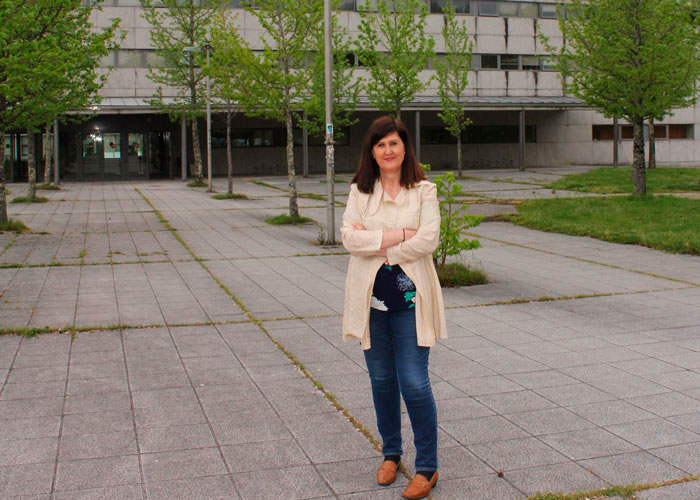
Director of Brain and Pain and lead researcher
Her research experience focuses on the field of brain activity, evaluation of cognitive and affective processes, chronic pain and non-invasive brain stimulation techniques.
His research focuses on the identification of neural correlates of cognitive impairment associated with age and/or related to chronic pain. He also studies the effectiveness of transcranial electrical stimulation interventions to reduce cognitive impairment.
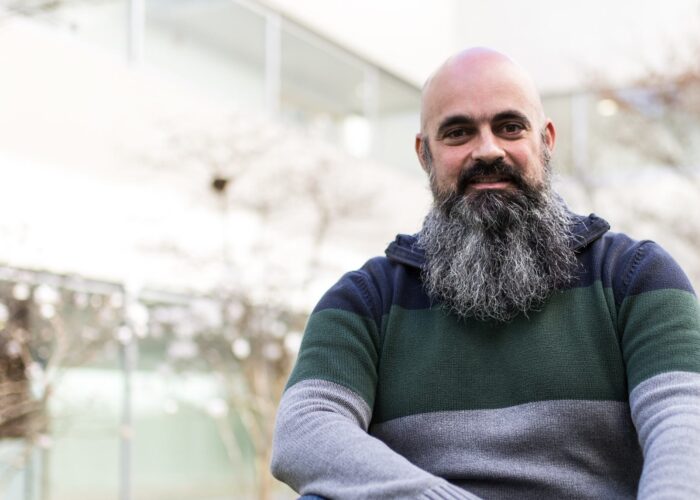
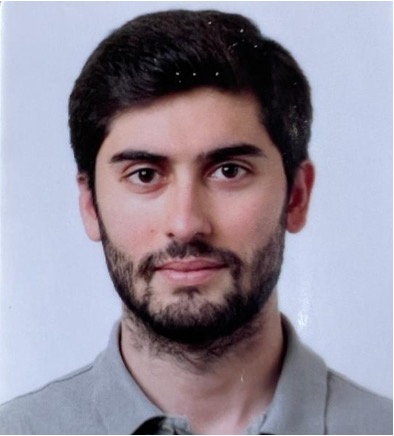
His recent research is focused on the study of pain biomarkers and the effectiveness of non-invasive transcranial neuromodulation techniques for the treatment of patients with chronic pain.
Research data:
Her research activity is focused on the field of Neuropsychology. Specifically, in the evaluation of new methods of detection and intervention in cognitive impairment and depressive symptoms associated with cancer.
Research data:


Her recent research is focused on the study of pain biomarkers and the effectiveness of non-invasive transcranial neuromodulation techniques for the treatment of patients with chronic pain.
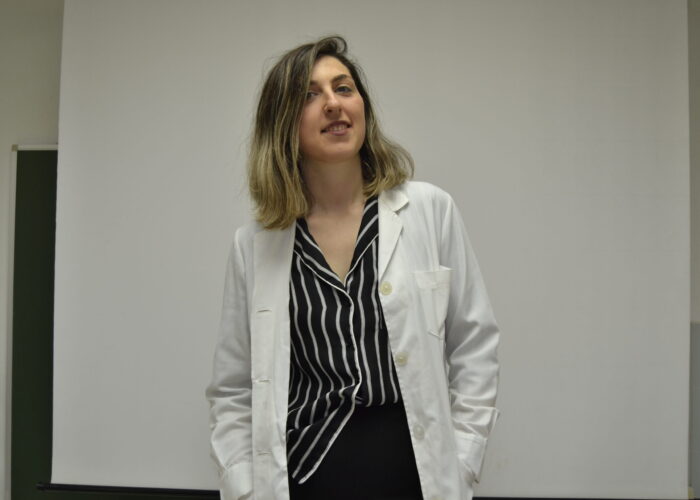
Her research interests focus on the study of the effect of central and peripheral neuromodulation for the treatment of chronic pain and its combination with physical exercise.
Research data:
Her main research interests focus on the study of central mechanisms of pain and the analysis of the effectiveness of neuromodulation techniques for patients with chronic pain.

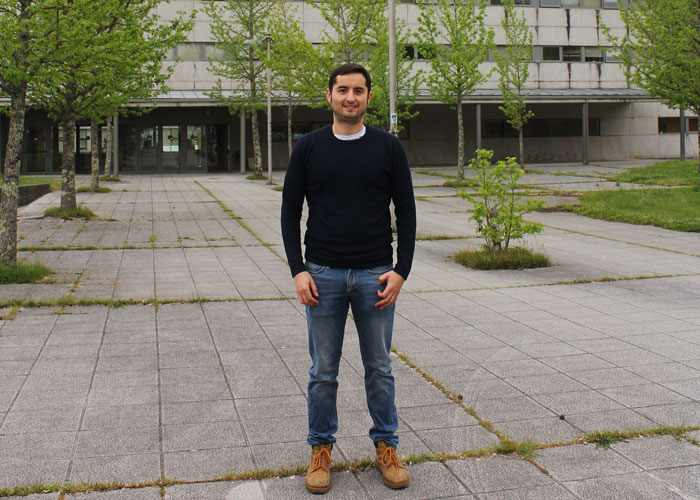
The overall objective of his research is to characterize how chronic pain affects cognitive processing using encephalography (EEG) or other functional neuroimaging techniques.
He is also interested in evaluating whether non-invasive brain modulation procedures have an effect on brain oscillations linked to pain processing.
Her research interests focus on the cognitive characterization of patients with chronic pain using psychophysiological and neuropsychological measures, and on the effect of neuromodulation techniques on cognitive functioning.

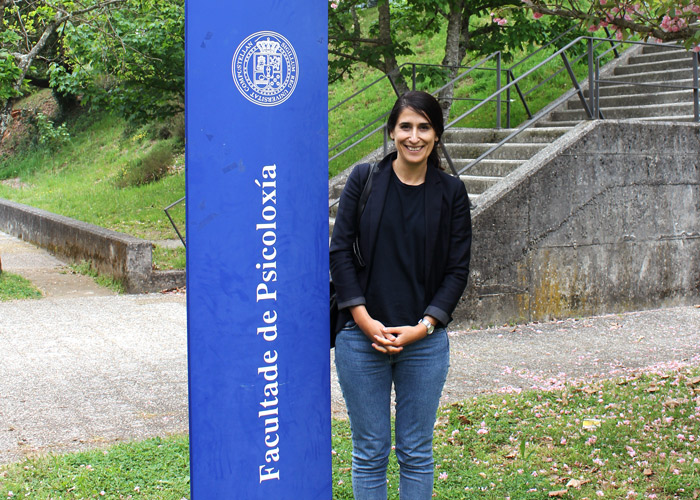
Her research interests are biomarkers and characterization of fibromyalgia, central sensitization and chronic pain, systematic literature reviews and evaluation of health services and technologies.
Currently working as Researcher at the University of Parma (from Nov 1st, 2022), her main research interest focuses on studying genetic and epigenetic mechanisms underlying the onset of pain. Furthermore, she maintains her interest in exploring the genetics and epigenetics of substance use disorders that she had started during her PhD studies.
Research data:
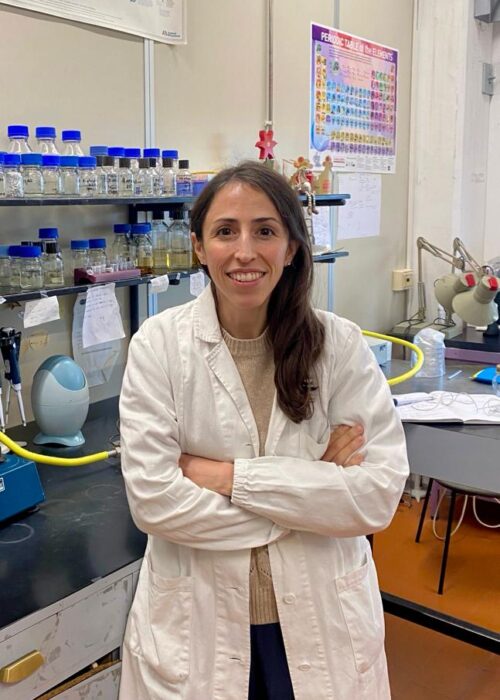
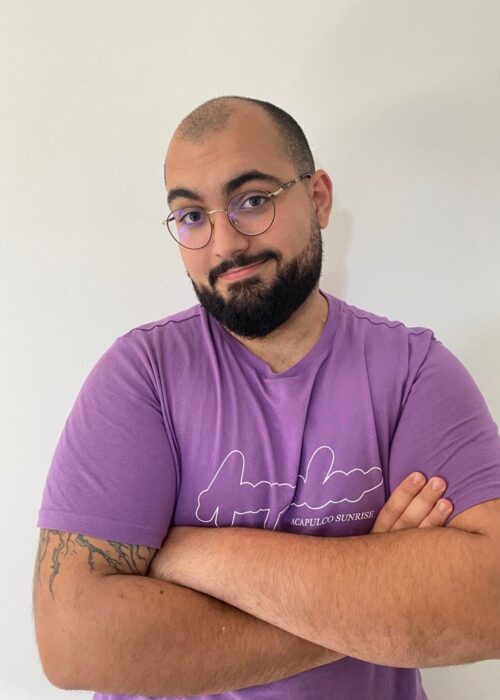
He works as biostatistician at the Health Research Institute of Santiago (IDIS). His experience as a biostatistician focuses on the field of epidemiology and public health research. It specialises in the rigorous application of advanced statistical methods to analyse data related to prevalent diseases, evaluating risk factors, and contributing to the advancement of health research.
Research data:
Carina is an assistant Professor of Neuropsychology and Cognitive Psychology at the University Fernando Pessoa (Portugal). Her research interests are the neuropsychology of aging and cognitive decline; emotional processing and decision-making, and the study of these topics with neuroimaging techniques.
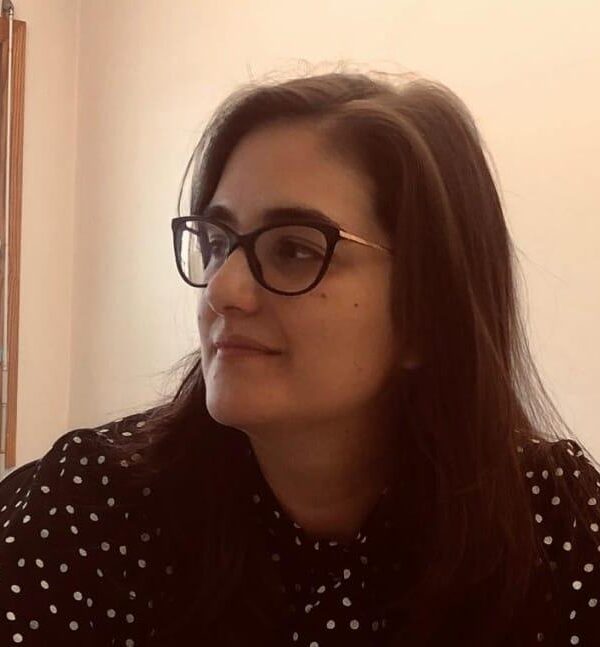
His research focuses on a non-traditional approach to address prevalent health problems. Areas of interest include non-invasive brain stimulation, neurophysiology, psychophysiology, brain activity, chronic pain, machine learning and health sciences.
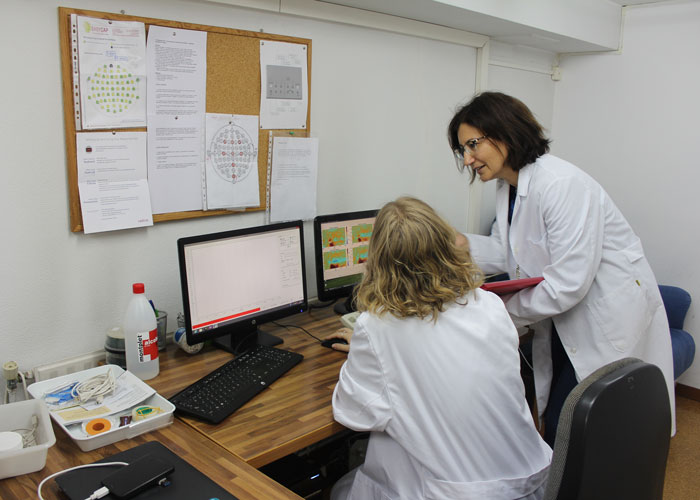
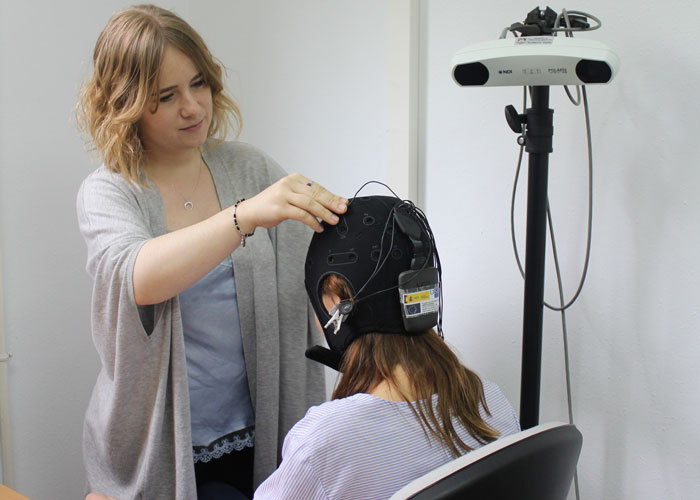
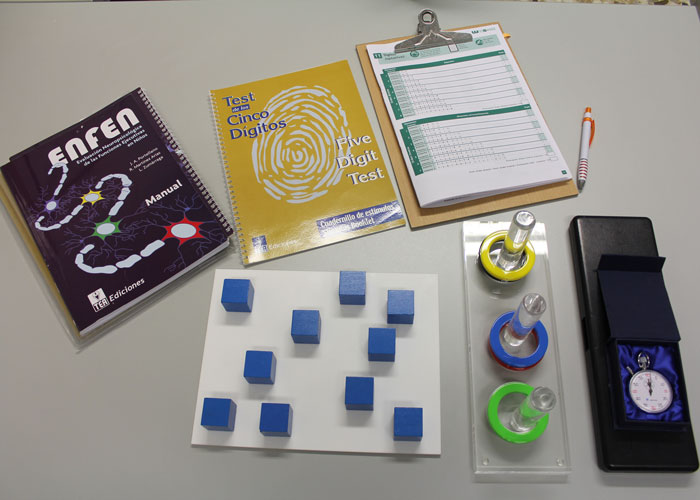


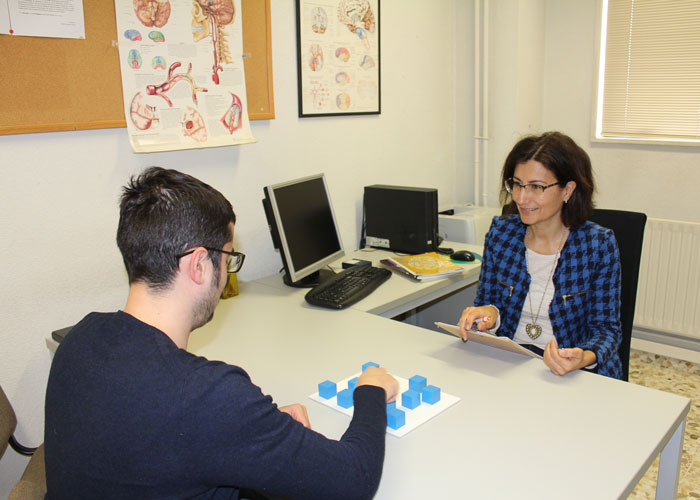
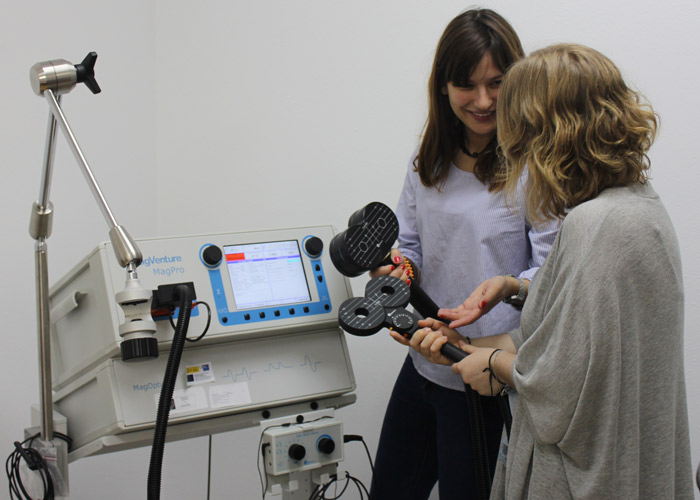
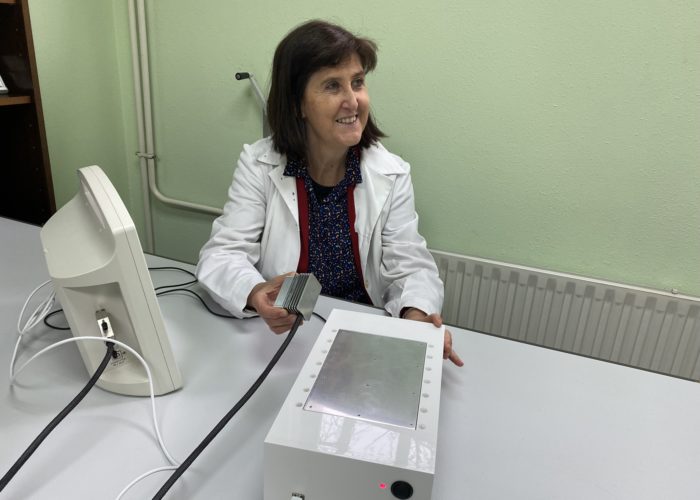
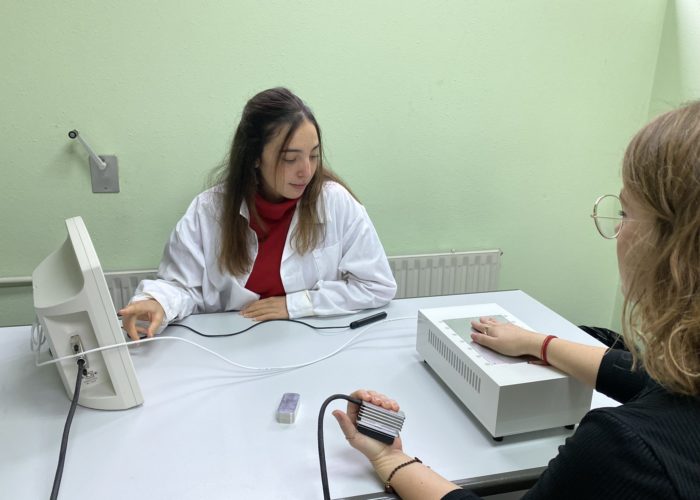
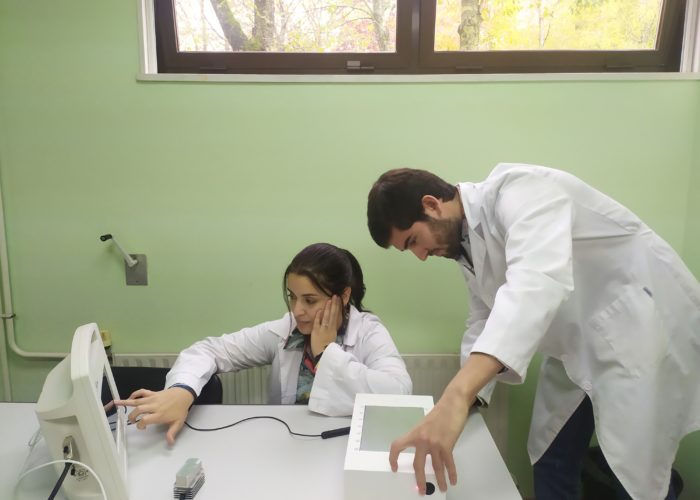
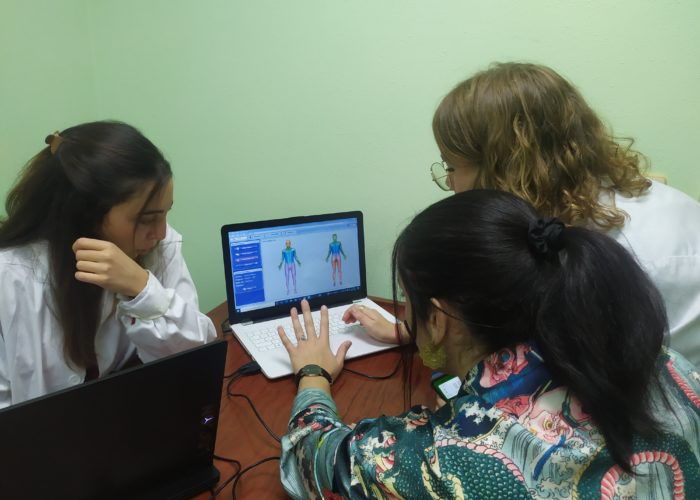
Este sitio web utiliza cookies para que usted tenga la mejor experiencia de usuario. Si continúa navegando está dando su consentimiento para la aceptación de las mencionadas cookies y la aceptación de nuestra política de cookies, pinche el enlace para mayor información.plugin cookies
ACEPTAR